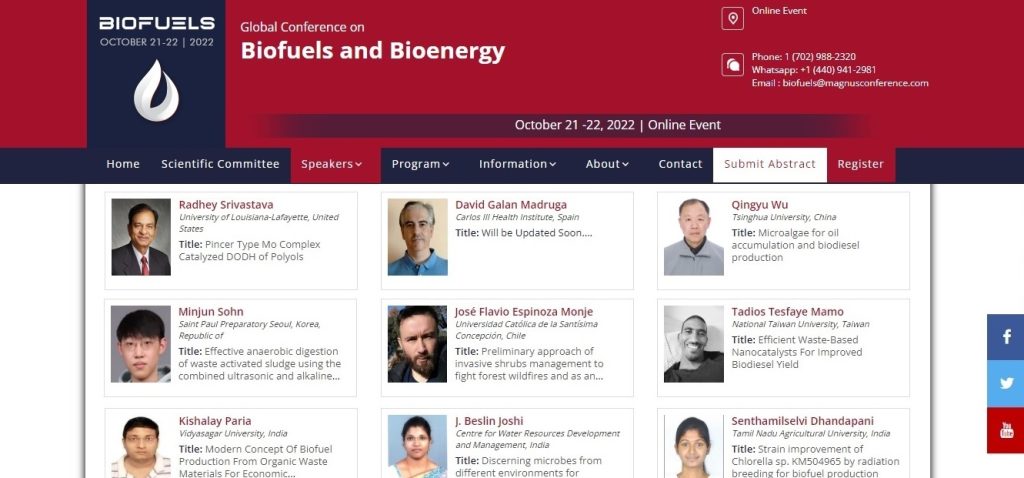The meeting brought together advocates from both the private and public spheres, on a platform that would generate relationships and collaborative work in the future.
Studying biomass and conducting tests with different raw materials and focusing on focusing on home heating is the context of the research conducted by Flavio Espinosa, a PhD student with a mention in Biodiversity and Bioresources (DCBB). A member of the first generation of this postgraduate program at the Universidad Católica de la Santísima Concepción (UCSC), the main motivation for participating in the case comes from a desire to connect with researchers in the region already at an international level.
The “World Biofuels and Bioenergy Conference” is the name of the meeting organized by Magnum Group from Orlando, USA. Invasive species Ritamella, blackberry and hawthorn are part of the raw materials that Flavio Espinosa studies to see which ones have the best properties when making pellets for home heating. “The results regarding the utility of extracting this species in key indicators of virulence in wildfires, and the work carried out with Dr. Gustavo Saez, together with the physical and chemical characterization of these three biomass, as well as pine, have been presented. In addition, a proposal has been made to formulate New to the manufacture of pellets, the latter is a research force and is being carried out under the tutelage of Dr. Laura Azucar,” he commented.
pellet based home heating
“The results in terms of physical and chemical properties lead to the development of a new proposal for the manufacture of pellets, on the basis of both elemental content and millability, among others. It also takes into account combustion properties such as low ash content and high calorific value. Teline monspessulana (Retamilla) is a type It is abundant in the Biobío area (9-12 tons / ha) and is not currently used at all”, explained Flavio Espinosa.
Currently, the student is in the pellet manufacturing stage, in a semi-industrial granulation machine located in the Energy and Innovation Building, recently opened at the University of California. There, the process is analyzed at different temperatures to determine the best method. Between a temperature range of 50, 60 and 70 degrees and different levels of humidity for the biomass introduced into the system, these are the tests that are currently performed experimentally, along with the final evaluation of the product based on ISO 17.225-2 quality standards for the pellets used. in home heating.
“Pellets are a dry, condensed fuel, an alternative to fuels with very low moisture levels, easy to store in homes, and an excellent choice to avoid using wet wood as much as possible which in its combustion turns out to be highly polluting. The environmental benefit of pellets lies in the lower emission of particulates into the atmosphere. , and if extracting new sources of biomass for their production leads to a benefit in other problems such as wildfires, that is even better,” stressed the student. from DCBB.

Today, Flavio Espinosa is in the final stage of the DCBB process, researching publishing options for his research, coordinating the latest details of the final paper, as well as conducting the last pilot tests in the production process. As a first-generation graduate student in this UCSC graduate program, Flavio Espinosa demonstrates the sense of crowning a superior stage professionally, academically and personally.
“There is a special and rewarding feeling being part of the first generation of this Ph.D. In my case, apart from having to change my thesis subject to second year as a result of losing my first professor Dr. Dani Garcia, in my current research I have invested a lot of time in covering both areas of the program With specific and direct goals, i.e., for example, biodiversity and my main two rationales are bio-resources,” he commented.







More Stories
“Those who go to museums but do not see an oak tree in the countryside should blush.”
Michoacana Science and Engineering Fair 2024, When the Call Ends – El Sol de Zamora
Dr. Miguel Kiwi, winner of the National Science Award, gives his opinion on nanoscience in Chile